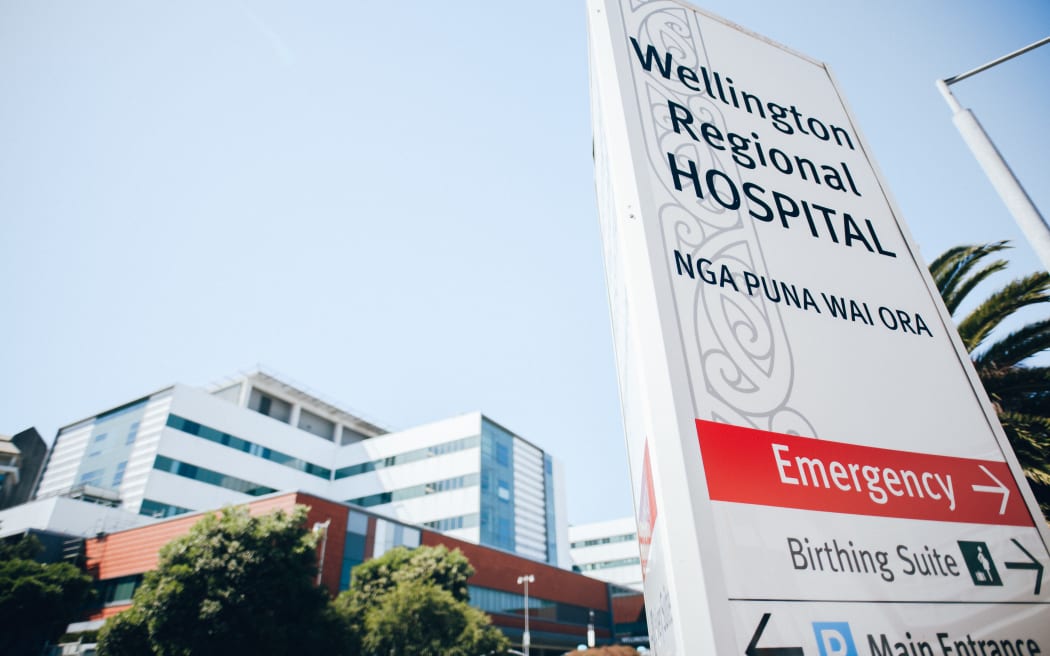A nurse at Wellington Hospital is revealing what life is like on the ward, amid pressure from the growing number of sick people needing treatment.
 Photo: RNZ / Dom Thomas
Photo: RNZ / Dom ThomasRuth, whose last name RNZ has agreed not to use, knows nurses who have already left this year – and she is thinking of joining them.
This comes as the hospital defers most non-urgent care and planned surgeries and the DHB pays for GP appointments to divert people from its busy emergency department.
Winter illness has meant an influx of patients, there has been an increase in people arriving at the ED and nurses are getting sick too.
“We’re working very long hours just to keep the place running. We’re working over and above our normal FTE [fulltime equivalent] hours, coming in early to sort of cover a very, very busy night shift.
“We are going without meal breaks, trying to manage patient complexities, just under mounting pressure to get people in,” Ruth said.
Ruth has been in nursing for 30 years. Asked if the current pressure made her question her job, Ruth said it did.
“Absolutely it does. It’s relentless,”
“It is pretty desperate. There is a lot of very tired burnt out nurses. It’s very challenging coming to work,” she said.
The real pressure point is the hospital’s emergency department. Wellington ED is seeing an average 175 presentations per day.
“So ED are the ones that have got the pressure and people waiting in the corridors. The wards are probably struggling to get patients fit to go home and then to be able to pull the patients from ED,” Ruth said.
Last month, aged care provider Enliven warned that its nursing shortage would see residents in need of high-level care moved between rest homes or into public hospitals.
The Aged Care Association knew of 70 empty beds in Wellington aged care facilities.
Ruth said that was adding to the problem.
“So we’ve got patients waiting in the hospital to go into a rest home and there’s no facility and not enough nurses in the rest homes to take them. That also occupies a number of beds where we can’t put acutes into them,” she said.
Ruth knows of between 12 and 14 nurses who have left their jobs this year.
Nurses union kaiwhakahaere Kerri Nuku warned of an exodus of nurses from Wellington and from other centres around the country.
“We’re hearing every day of nurses that are choosing to leave. Some of them are chasing the money to go to Australia, some have got opportunities elsewhere but we have also got nurses that are tired and want to leave,” Nuku said.
She said pressure on the health system had hit a crisis point. Executive director of the union for salaried medical specialists (ASMS) Sarah Dalton said doctors agreed.
“Our members, who are senior doctors and specialist hospital doctors, share the concerns that a number of nurses have expressed. It is increasingly becoming somewhat unsafe both for staff and patients,” Dalton said.
Capital and Coast DHB said it took the health and wellbeing of staff extremely seriously and was working to ease pressure.
“[We] acknowledge the significant pressure that our staff are under and the impact this can have on job satisfaction .We continue to work with them and our union partners to consider options to help ease that pressure,” chief medical officer John Tait said in a statement.
On Friday, district health boards disappear and Health NZ takes over.
Wellington Hospital nurse Ruth was not expecting much to change.
“… nothing will really change for us on the ground level … we will continue as we are,” she said.
